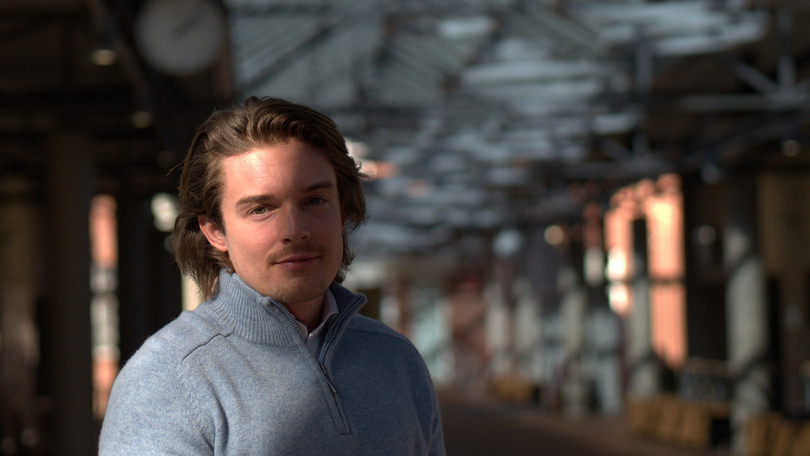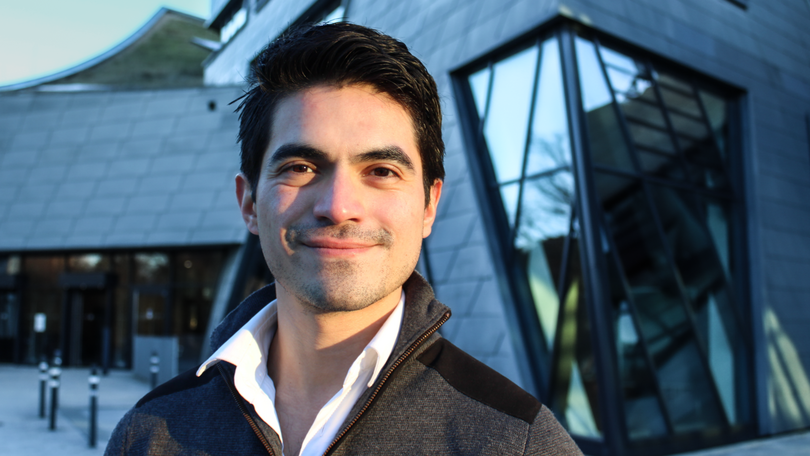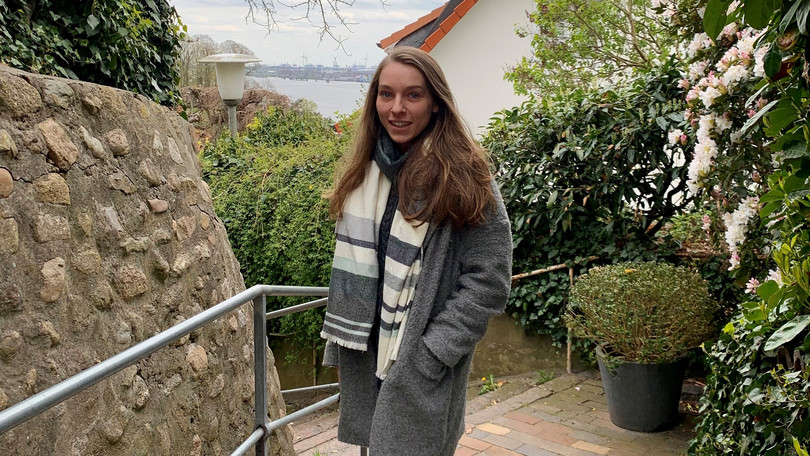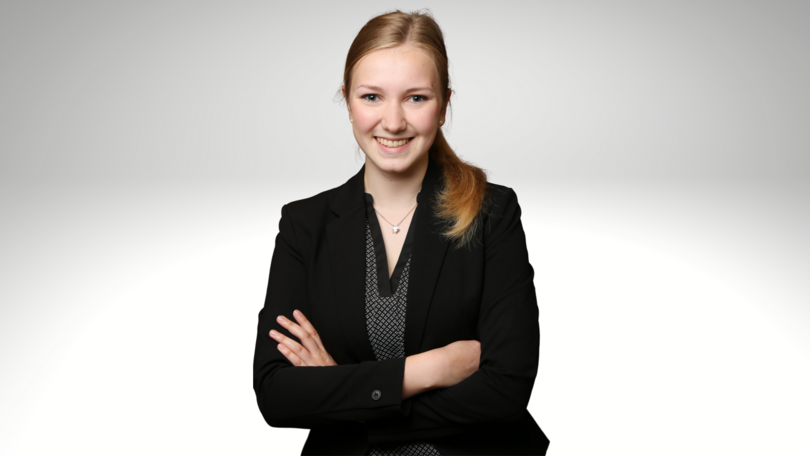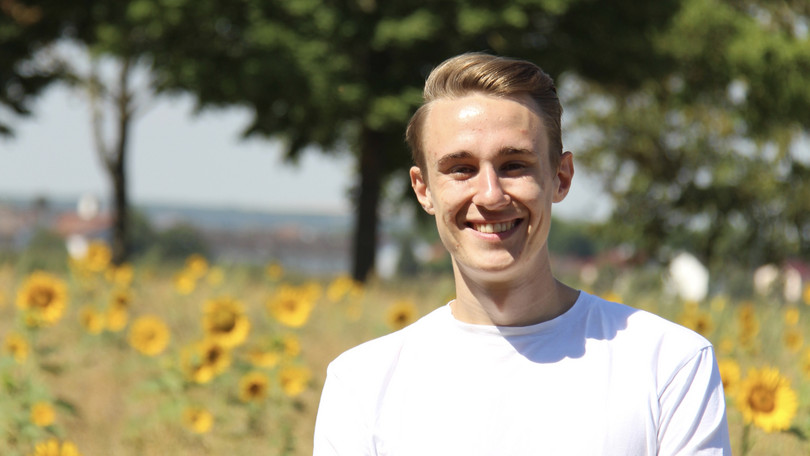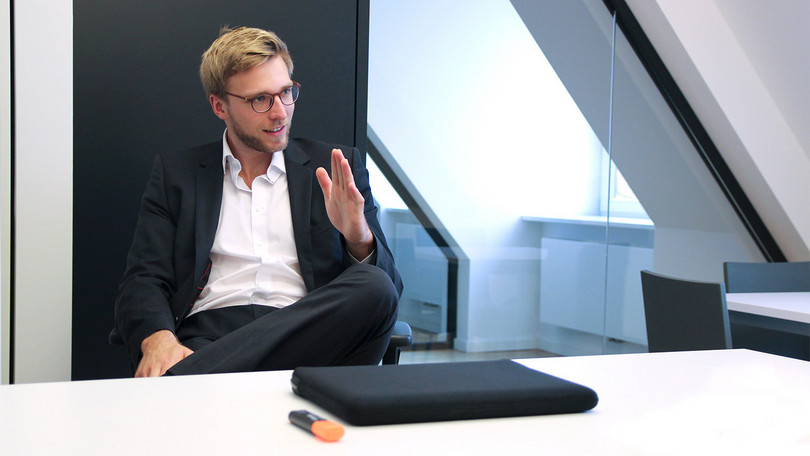Student and Alumni experiences - Management & Sustainable Accounting and Finance
On this page you find experiences of current and former students about the Masters Management & Sustainable Accounting and Finance at Leuphana Graduate School.
Finn's experiences
31.03.23 Finn Bongert, a Lüneburg native, left Leuphana after completing his Bachelor degree, only to return a short time later. The educational idea of Leuphana and the close supervision by the lecturers had made him feel at home in his meanwhile chosen Masters degree. However, he now feels at home in the Management & Sustainable Accounting and Finance programme and particularly appreciates the international and interdisciplinary set-up as well as the topicality of the subject matter.
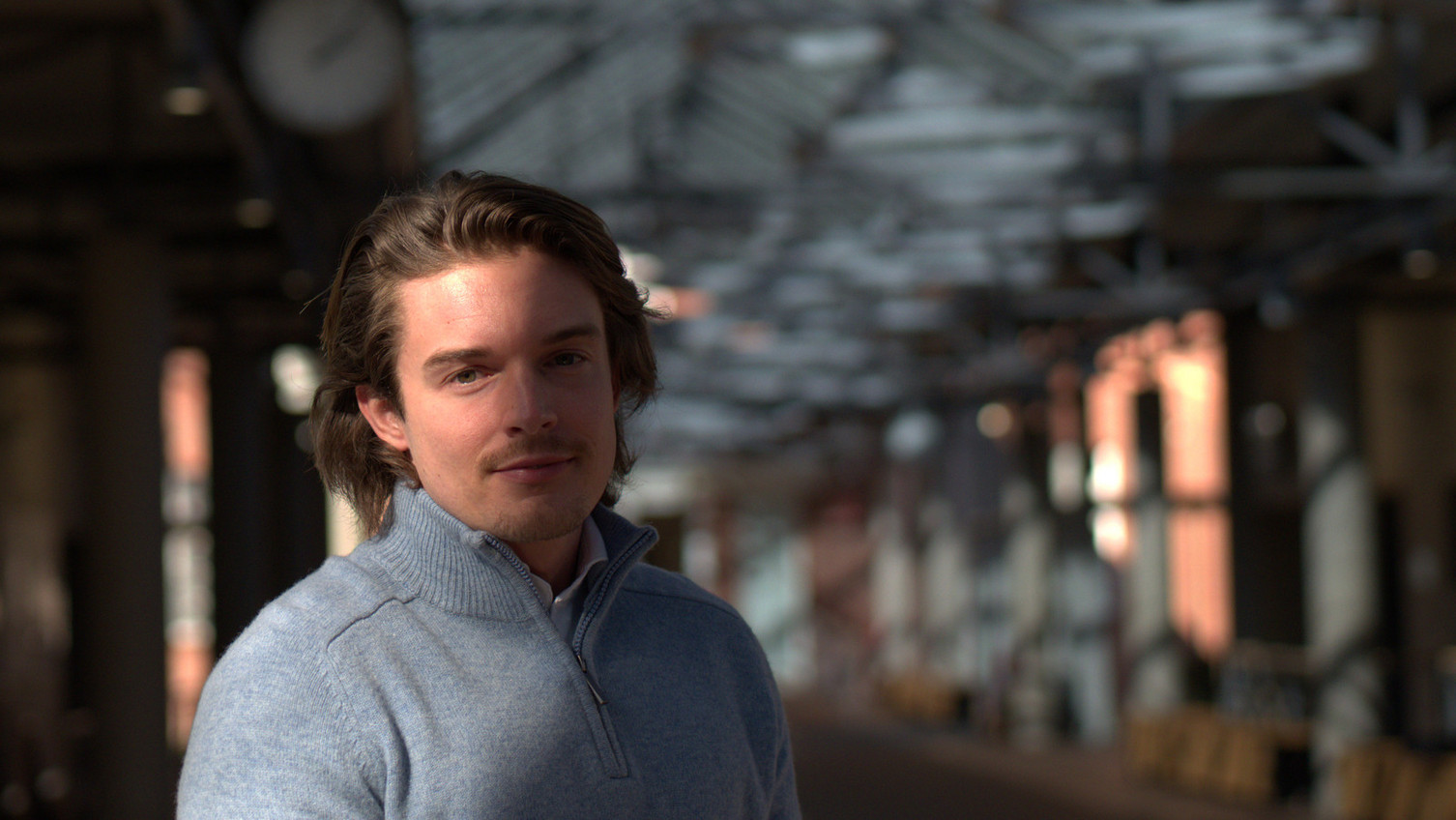 ©Ciara Charlotte Burgess/Leuphana
©Ciara Charlotte Burgess/Leuphana
Why did you choose the Management & Sustainable Accounting and Finance programme at Leuphana Graduate School?
For me personally, the Masters programme combines many areas that reflect my professional and private interests. I feel that a sustainable and thus future-oriented approach is becoming increasingly important in the job market. That's why I find the combination of classic business administration topics such as finance and accounting with a sustainable perspective very contemporary. The combination with management topics and the interdisciplinarity this creates with other Masters programmes is also an interesting approach in my opinion.
What did you study before you started your Masters at the Leuphana Graduate School and how were you able to tie in with it?
I previously studied Business Administration and Business Psychology in my Bachelor at Leuphana. Since I chose Finance as my focus, I wanted to continue with it in the Masters programme. That's why I first decided to take a Masters programme in Finance at the TU Chemnitz. However, I quickly missed the supportive contact with the lecturers and the modern teaching approach at Leuphana. After one semester, I decided to return to Leuphana and have not regretted this step. The English language and the variety of topics give me a good feeling for my future career.
Leuphana sees itself as an inter- and transdisciplinary university. The orientation of your study programme is also interdisciplinary. How do you perceive this?
I feel that the degree of interdisciplinarity in this programme is very well chosen. I can now perceive the resulting advantages even more strongly than in my Bachelor programme. One reason for this may be that students in Masters programmes have years of academic as well as professional background in their fields. This makes the exchange about different approaches even more interesting. In complementary studies, three modules can be taken over the duration of the programme, which do not have to be directly related to the Masters programme itself. This provides positive variety and broadens one's horizons.
How do you rate the area of sustainability in your study programme?
No pure sustainability modules have to be taken, but most modules follow a sustainable approach. Thus, the topic of sustainability is always addressed in a different context, without classical finance and accounting learning content suffering as a result. Rather, the teaching is required to always bring the content up to date. An example of this is the new EU directive on sustainability reporting, which we were able to cover promptly in the accounting modules.
How is the Masters programme positioned in terms of internationality?
The internationality within the programme is remarkable. At least half of my fellow students come from different countries. This not only promotes the quality of learning, but also supports intercultural communication and always makes for interesting topics of conversation.
I have not yet completed a semester abroad. However, I have firmly planned to do so during the course of the Masters and have therefore already attended an information event. There is a wide range of partner universities. I'm sure that everyone can find something suitable for them.
What is the relationship between the students and the lecturers like?
In my opinion, the students have a close, but nevertheless very professional relationship with the lecturers. The small courses allow for constant exchange, which I find very pleasant. In addition, the lecturers are also helpful after the courses and are committed to the learning progress of all students. The examination results are also adapted to this. For written papers and presentations, the lecturers show a noticeably serious interest in the students' research results.
Do you already have an idea what your Masters thesis might be about? Can you give us a little insight?
It is still too early for me to think about the master's thesis. Basically, my primary focus has always been on finance. In the meantime, the auditing area has also caught my interest. I wrote my Bachelor thesis on the financing of wind energy and the impact of a legal reform on it. The financing of renewable energies is an omnipresent area that interests me a lot. Therefore, I hope that I will be able to further expand my knowledge in this area during my Masters degree.
What keeps you busy besides your studies?
At the moment, I am working as a student trainee at an investment company for renewable energies in Hamburg. Even though studying is time-consuming, I think it is important and possible to gain professional experience on the side.
In addition, I regularly go to the gym to keep myself somewhat fit. In addition to Leuphana's university sports, Lüneburg offers many affordable sports activities.
How do you like Lüneburg as a place to live and how do you spend your free time here? Do you use the semester ticket? What should everyone have done in or around Lüneburg?
As a native of Lüneburg, I naturally like the city very much. I have a strong emotional connection to this city, as a large part of my family lives in the Lüneburg area. Lüneburg has many pubs and bars in its beautiful city centre. In addition, there are many ambitious amateur football clubs in the Lüneburg area where it's worth watching matches or playing in one yourself. And if you're longing for a big city, you can be in Hamburg in about 30 minutes with the semester ticket. The semester ticket is also useful for finding a job, as Hamburg's job market is naturally somewhat more diverse.
To whom would you recommend the Masters programme in Management & Sustainable Accounting and Finance at Leuphana Graduate School?
I would recommend the Masters to anyone who is interested in researching future-oriented business topics. In many subjects, you are expected to deal intensively with the research topics, which is also reflected in the examination results. The ability to work in a team is also a prerequisite. There is a lot of group work and open discussions. Being able to speak English at an above-average level is not a prerequisite. Even if you communicate exclusively in English, mistakes are forgiven. In addition, you quickly get used to a foreign language, which can also offer great career prospects.
Interviewer: Jonas Kernein
Fernando's experiences
24.02.2023 International student Fernando Aguilera came to Leuphana Graduate School looking for a Masters programme that is both problem-solving oriented and strong in research. After enrolling in the programme Management & Sustainable Accounting and Finance, his expectations have been fulfilled. Now, Fernando is already thinking about his PhD.
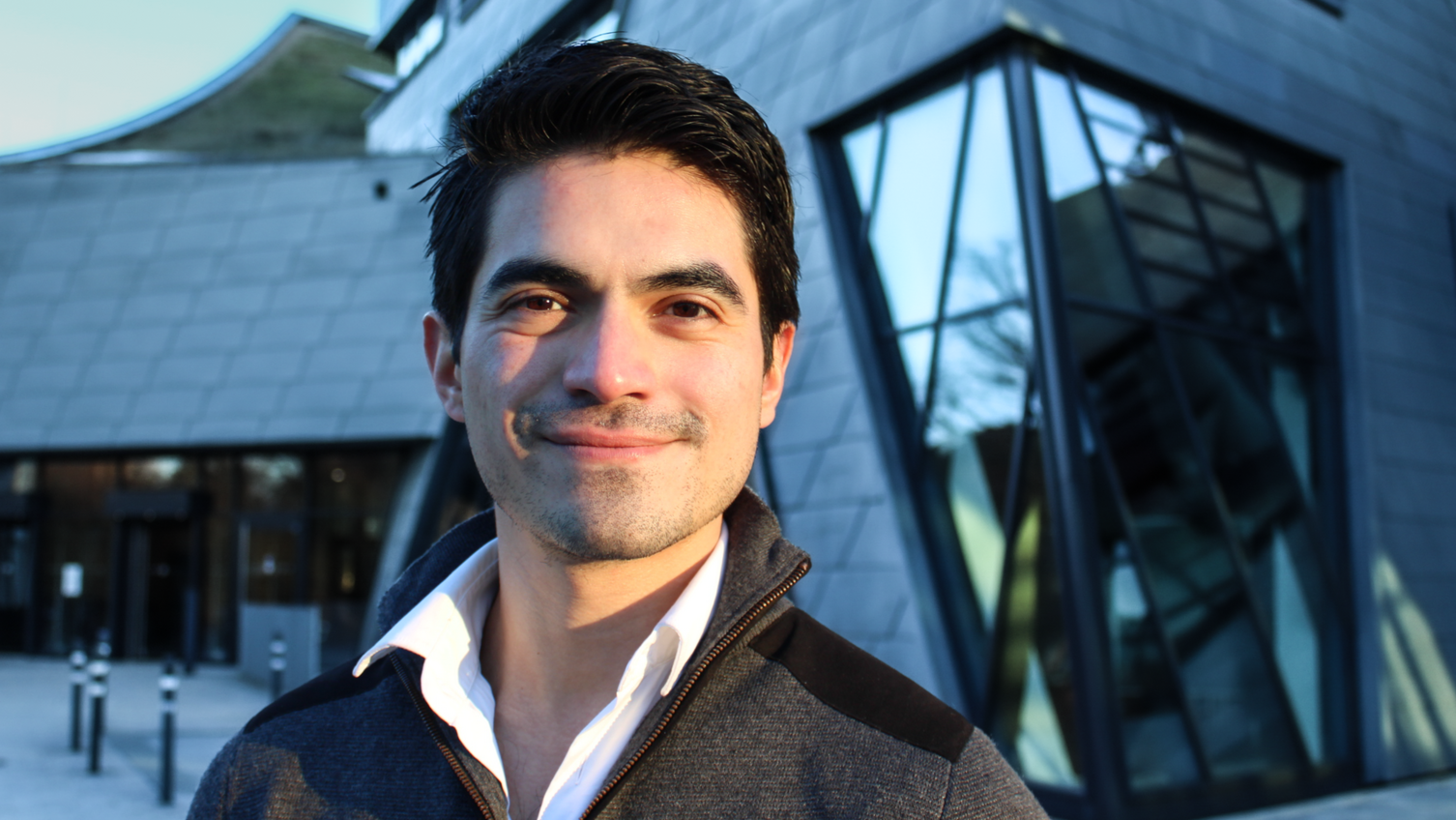 ©Inna Savchenko
©Inna Savchenko
Why did you choose the study programme Management & Sustainable Accounting and Finance at Leuphana Graduate School?
Among other European universities, I chose Leuphana because of the research approach to sustainability through finance and accounting in the MSAF programme, which is aligned with the Principles for Responsible Management Education (PRIME) from the United Nations. Furthermore, I wanted to enrol in an innovative Master of Science programme, and finally, I visited Germany in 2020 before the COVID-19 pandemic and wanted to come back to study.
What did you study before you started your Masters at the Leuphana Graduate School and how were you able to tie in with it?
Years ago, I started a Bachelor in Earth Sciences but finished with a Bachelor degree in International Trade. After graduating, I worked for two and a half years in climate policy and carbon pricing (carbon taxes and emissions trading systems) in a consulting firm that’s part of a stock exchange in Mexico. Therefore, I clearly understood the need to connect science with business and environmental policies, to reach effective climate action. At Leuphana our professors are researching relevant environmental and social issues, so my expectations of the programme are being fulfilled.
Leuphana sees itself as an inter- and transdisciplinary university. The orientation of your study programme is also interdisciplinary. How do you perceive this?
This is true. The Complementary Studies mean an opportunity to reach transdisciplinary approaches for tackling complex issues such as environmental justice in conservation and development. This was the topic of my complementary studies in my first semester. Many researchers agree that research into the link between environmental justice and the business perspective is needed to implement it. For my upcoming semesters, I see the complementary studies as golden opportunities to understand trending social and environmental topics (e.g., gender equity and diversity) that companies and organisations could still understand, and implement better.
How do you assess the area of sustainability in your study programme?
The MSAF programme is significantly linked to corporate sustainability. For instance, in my first semester, I learned through qualitative methods about integrated reporting and capital market reactions, the use of management control systems to enforce sustainable development, and the role of environmental justice in forestry carbon projects. I am curious about the use of labelled bonds (e.g., green and blue) and for this, in the next semesters, we have specialized modules in sustainable finance.
How is your Masters structured in terms of internationality?
The MSAF is a programme completely taught in English and a considerable proportion of my colleagues come from an international (non-German) background as do I. International cooperation between European and non-European countries matters for current social and environmental challenges, therefore, our discussions are often on the EU from a regulatory perspective (e.g., EU Taxonomy, EU Directive on Corporate Sustainability Reporting and Corporate Sustainability Due Diligence) but also on international regulations such as standards of the Global Reporting Initiative (GRI), and guidelines on climate and biodiversity reporting. In addition, the programme encourages you to make a semester abroad and the third semester is recommended for this purpose.
What is the relationship between the students and the lecturers like?
We are a small group of about 30 students this year and I found this a privilege to get a very personalized learning experience together with excellent professors in business administration research. In my opinion, our professors are kind and open to listening to help students to reach their professional goals, and our discussions happen in respectful and open-minded atmospheres among colleagues with diverse previous professional experiences.
Are you already thinking about your Masters thesis? Can you briefly outline your topic?
I have not still decided on my Masters thesis topic. However, I am interested in researching the link between new biodiversity-disclosure regulations as COP15 outputs and market reactions. According to recent studies, corporate disclosure on biodiversity strategies will be crucial for stakeholders in the near future. I would be happy to develop my Masters thesis on biodiversity disclosure and its link to market reactions, and for this goal, the unique Doctoral Track programme of Leuphana is attractive to me since I maybe want to pursue a PhD after completing my Masters.
What keeps you busy besides your studies?
I go to the gym, and I sing and play the guitar. In the next semesters, I would like to get professional experience as a research assistant or Werkstudent in sustainability reporting as in Germany, you have the opportunity to work besides focusing on your Masters studies.
How do you like Lüneburg as a place to live and how do you spend your free time here?
Lüneburg is a nice small city surrounded by nature, located in the north of Germany. Lüneburg possesses a vast historical heritage that comes from the middle age, and local people are very nice. Also, I can use my semester ticket anytime to reach near cities around. I can easily go to Hamburg, in my opinion one of the most beautiful cities in Germany, by train. There is so much to see and explore around and I am looking forward to summer and also to discovering the Lüneburg Heath landscape since last year I didn’t get the chance to appreciate it.
To whom would you recommend the Masters programme in Management & Sustainable Accounting and Finance at the Leuphana Graduate School?
If you are interested in understanding how accounting and finance can drive real solutions and opportunities to current social and environmental challenges, from an empirical and theory-based research perspective, the MSAF programme is a perfect match for you. Be open-minded about innovative and self-oriented approaches to learning. Of course, a solid grounding in business economics can prepare you to go further into advanced sustainable accounting and finance topics (e.g., sustainability reporting, climate-related financial disclosures, ESG financial instruments, and carbon markets).
Interviewer: Jonas Kernein
Franka's experiences
11.04.2022 After a dual Bachelor degree that was closely linked to practice in companies, Franka Gutzmer took a different path with the Masters in Management & Sustainable Accounting and Finance to dedicate herself to the subject of finance in more detail.
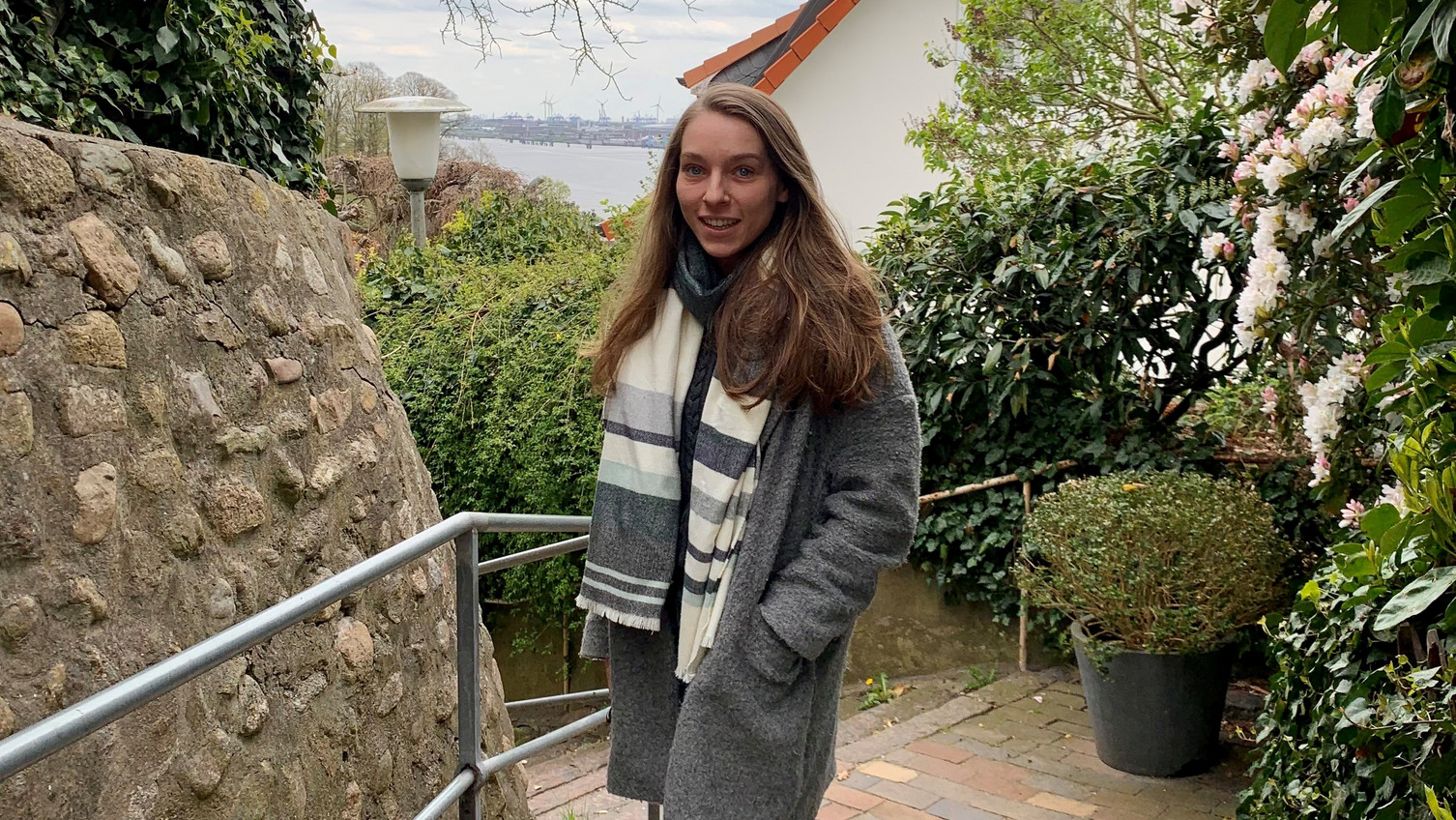 ©Privat
©Privat
Why did you choose the Management & Sustainable Accounting and Finance study programme at Leuphana Graduate School?
When choosing my Masters programme, it was important to me that it followed a future-oriented approach, built consecutively on my Bachelor and still covered a specific subject area in depth. The Masters in Management & Sustainable Accounting and Finance promised to combine all of this, and that's why I chose it. Furthermore, I found the small course size (max. 25 students) very appealing.
What did you study before you started your Masters at Leuphana Graduate School and how were you able to tie in with it?
I completed a dual business administration Bachelor degree in Hamburg. I already enjoyed the finance subjects the most during my Bachelor degree, which is why I wanted to focus on this area in my Masters. Due to the duality of the Bachelor degree, it was oriented towards business practice; the Masters now approaches topics from a more research-oriented perspective.
During your studies, you have the opportunity to choose between different modules and build up an individual educational profile. Which modules did you choose? What do you mean by this?
I find the possibility to choose between different modules in the second and third semester (also interdisciplinary from other management Masters) interesting and challenging. I chose a mixture of finance and accounting subjects as well as a module from the Masters Management & Entrepreneurship. In the subject "Tax Management" we critically reflected on the taxation of entrepreneurial activities based on selected balance sheet tax issues, in "Sustainable Finance" we dealt with the financial effects of entrepreneurial sustainability and an elective module with how various nudges and biases influence our everyday decisions.
Leuphana sees itself as an inter- and transdisciplinary university. The orientation of your study programme is also interdisciplinary. How do you perceive this?
Interdisciplinarity is expressed in particular in the Complementary Studies and elective modules. There you meet fellow students from a wide range of Masters programmes to work in an interdisciplinary way. It gives you the chance to combine knowledge from different fields and to push forward innovative ideas.
How do you assess the area of sustainability in your study programme and what significance does it have for a career in finance and accounting?
Sustainability is one of the big topics in Germany and in this transformation, finance plays a central role in companies. Through various fields, especially in the areas of reporting and planning, finance takes on the task of anchoring sustainability issues in companies in the long term and providing appropriate capital for supporting investments. Increasing (state) regulations such as the European Green Deal, the Corporate Sustainability Reporting Directive or the Supply Chain Act will be a major challenge for companies in the future. In order to meet these requirements, specifically trained professionals are needed for whom a large field of activity with good career opportunities is opening up.
How is your programme structured in terms of internationality?
The programme is entirely in English, with minor exceptions that arise due to the elective options. This means that the programme is also suitable for international students. International exchange is also promoted through the possibility of a semester abroad and the provision of partner universities.
What keeps you busy besides your studies?
After my dual Bachelor degree, I stayed with my cooperation company, worked full-time for a year and switched to part-time when I started my Masters. I currently work as a student trainee in the "IT Project Management Office" and mainly deal with project controlling. In my free time, I like to do sports and go out with friends.
What are your plans after your Masters?
If the situation allows it, I would like to go travelling first. After that, I will look for jobs at the interface of finance and IT. At the moment, I'm still very open and I'm sure that the right thing will come up for me.
Who would you recommend your study programme at Leuphana Graduate School to?
I would recommend it to anyone who has an affinity for finance and accounting topics and who enjoys scientific work on future-oriented topics. The programme is characterised by a lot of group work and often several exams per subject. You should be open-minded and communicative and enjoy ambitious work.
Interviewer: Jonas Kernein
Theresa's experiences
11.04.2022 Theresa Pleye can apply the knowledge from her Masters Management & Sustainable Accounting and Finance directly in her part-time job in the sustainability department of a bank and generally enjoys the modern approach of the programme.
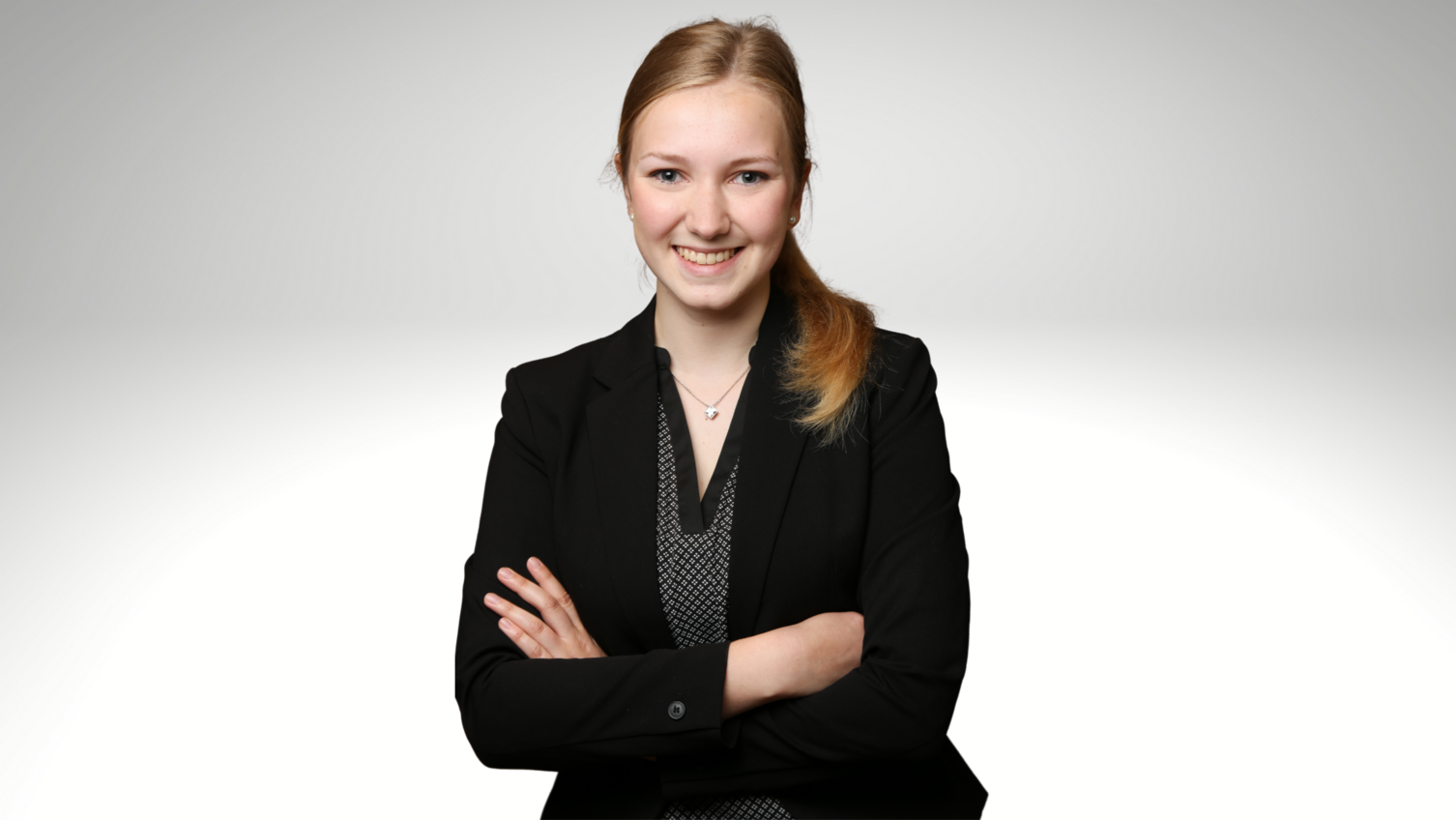 ©Privat
©Privat
Why did you decide to study Management & Sustainable Accounting and Finance at Leuphana Graduate School?
Through my Bachelor in the field of sustainability and my work at a bank, it quickly became clear to me that my Masters had to be a combination of business administration and sustainability. I wanted to learn about the levers in corporate processes from accounting and finance for more sustainability. At the same time, I wanted to do a methodological Masters programme to get to know quantitative-empirical scientific work better. The Masters in Management & Sustainable Accounting and Finance fulfilled all my wishes, so the decision was not difficult.
What did you study before you started your Masters at the Leuphana Graduate School and how were you able to continue?
In my Bachelor, I studied sustainable development with a focus on economics in Bochum, so I am rather an exotic student in the Masters programme. Compared to other students who did a classic business Bachelor, I had less experience in the field of accounting, but I was able to catch up or compensate for this. At the same time, my Bachelor perhaps made it easier for me to make the connection to the sustainability discourse at some points and I had to read up less on sustainability-related topics.
During your studies, you have the opportunity to choose between different modules and build up an individual educational profile. Which modules did you choose? What do you mean by that?
The study programme is largely pre-structured. There are elective options in the Complementary Studies, partly in the management subjects and in the third semester you can choose courses in two modules. For example, I chose the Sustainable Finance course, which gives a practical and methodical insight into the possibilities and financial consequences of ESG [Environmental, Social & Governance] Investing. The other course was in Nudging & Biases and looked at human behaviour in different situations away from the homo oeconomicus narrative.
Leuphana sees itself as an inter- and transdisciplinary university. The orientation of your study programme is also interdisciplinary. How do you perceive this?
The interdisciplinarity and transdisciplinarity can be felt very strongly in the Complementary Studies, where a variety of different courses is offered outside of one's own major field of study. Here you can either connect to your own discipline from a different perspective or dive into new topics completely outside of your focus. The MSAF courses regularly highlight the connection to current sustainability discourses in society and regulation. The importance of classic accounting and finance topics is placed in the larger context of societal development within the UN SDGs [Sustainable Development Goals] and other frameworks. Overall, the focus is on the integrative importance of sustainability in the fields of accounting and finance.
How do you assess the area of sustainability in your study programme and what significance does it have for a career in finance and accounting?
Sustainability is thought of in an integrated way in the programme and is not dealt with separately as a topic - and that's how it has to be, in my opinion, so that we can achieve a real change in thinking in the classical economic sciences. In the Masters, we research different ways of increasing sustainability in companies - from investor engagement to internal accounting to the gender composition of the board of directors. During the Masters, you get an overview of various research strands. It is becoming increasingly clear that even classical business studies finally see the topic of sustainability less as a passing trend and more as a new challenge and question of survival for companies. The fact that this importance is recognised in research is the first step. Future managers and experts must therefore be educated in sustainability in order to be able to set innovative impulses in companies and make them fit for the future.
How is your programme positioned in terms of internationality?
MSAF is set up as an English-language Masters programme, which opens the door for more international students to apply for the programme. At the latest in the complementary and management courses, you have a lot of contact with international students. In terms of content, the Masters is internationally positioned due to the literature reviews. Due to the current regulatory developments, the focus in the discussions is often on the EU area.
What keeps you busy besides your studies?
I have been working at a bank in the sustainability department since the beginning of the Masters. That's why I was able to put a lot of the content of my studies into practice right away or underpin my practical experience with empirical data - the interaction worked very well. The traditional student life might be missing out, but I wouldn't want to miss my job.
What are your plans after your Masters?
I am looking forward to devoting 100% of my time to my job at the bank after my Masters.
To whom would you recommend your study programme at the Leuphana Graduate School?
Ideally, students will have focused on Accounting & Finance in their Bachelor. If this prior knowledge is missing, you have to plan the time to deal with some topics more than the other fellow students. Interested students do not have to have explicitly planned their career in the field of sustainability. The MSAF Masters can be seen as an update of the classic Accounting and Finance Masters with reference to current challenges. You should have ambition, a certain resistance to stress, motivation and self-organisation in order to complete the programme well and with fun. In any case, everyone should have a desire for scientific work, as there are very few exams and mainly own analyses and studies. If you are interested in doing a doctorate in this field, I think you will be very well prepared.
Interviewer: Jonas Kernein
Niklas' experiences
15.12.21 Niklas Werthschulte remained loyal to Leuphana after finishing his Bachelor degree. He completed his studies in Business Administration with a thesis with distinction, and is now looking forward to the empirical research of his Masters in Management & Sustainable Accounting and Finance.
Editorial addendum (19.8.24): After successfully completing the Master's programme, Niklas Werthschulte is now pursuing a doctorate at the Institute of Management, Accounting and Finance while working for an auditing company. You can find the latest portrait here.
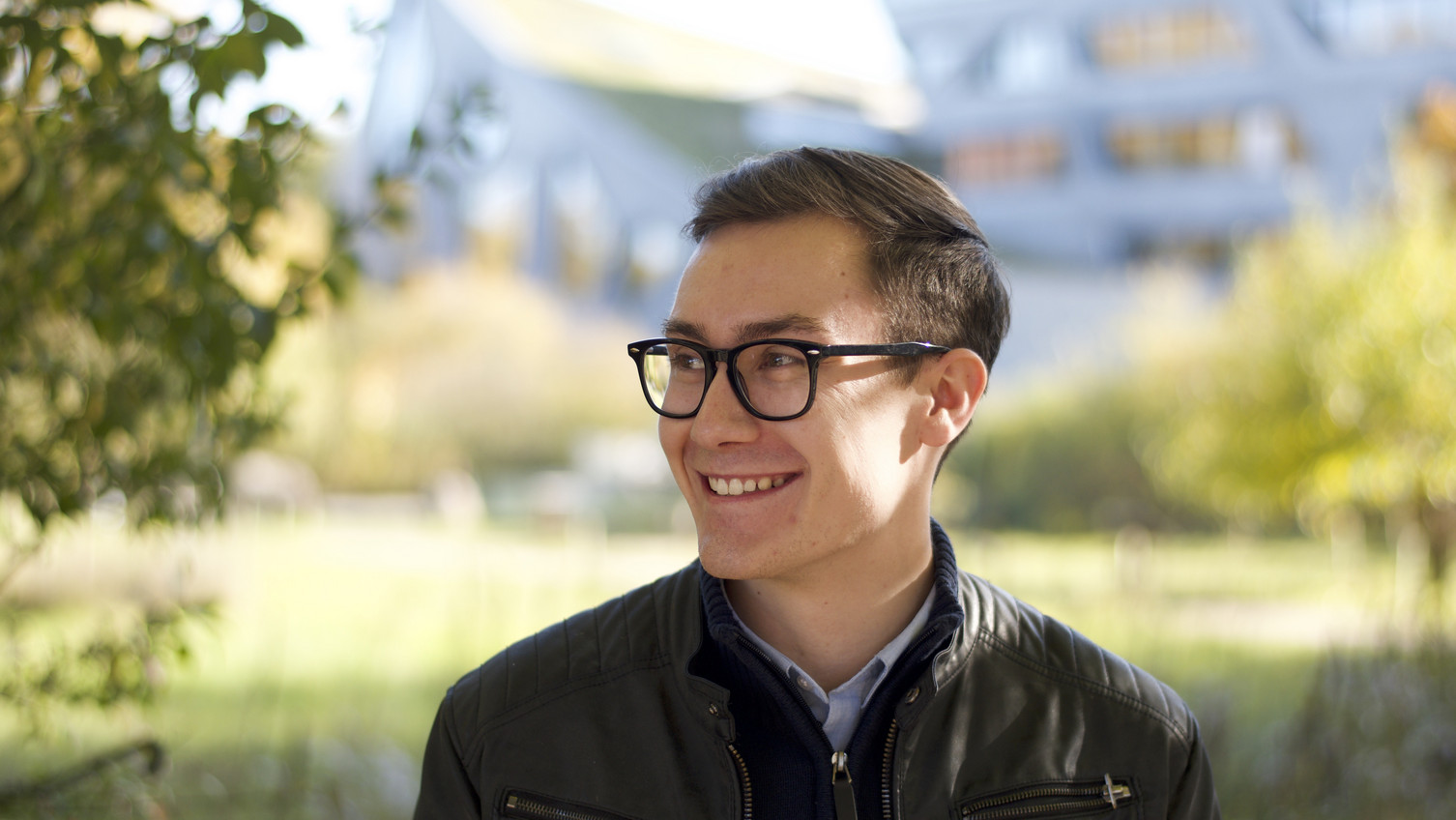 ©Leuphana/Marvin Sokolis
©Leuphana/Marvin Sokolis
Why did you choose the study programme Management & Sustainable Accounting and Finance at Leuphana Graduate School?
I already completed my Bachelor degree in Business Administration at Leuphana. Because the special support and the choice of specialisation convinced me, I stayed at Leuphana. Especially in the second part of the Bachelor degree programme, my interest in the social sciences and particularly in economics increased. The strong focus on empirical research in the Masters programme has thus become my main decision criterion.
What did you study before you started your Masters at the Leuphana Graduate School and how were you able to tie in with it?
As I said, I also did my Bachelor degree at Leuphana. There, I mainly dealt with finance and accounting. The skills and knowledge I was taught in the Bachelor prepared me well for the Masters and even gives me a head start. The Leuphana Bachelor already covered a wide range of topics and deepened important fields individually. An example would sustainability reporting.
Leuphana sees itself as an inter- and transdisciplinary university. The orientation of your study programme is also interdisciplinary. How do you perceive this?
Interdisciplinary work is becoming increasingly important in practice. So it is important to gain knowledge not only in one's own subject, but also in related disciplines.
How do you perceive the Complementary Studies, which is designed to be more transdisciplinary?
The Complementary Studies offer the chance to get to know other fields and students.
How do you assess the area of sustainability in your study programme?
Since the study programme offers a combination of sustainability, management as well as accounting and finance in teaching, the focus is set differently than in pure Business Administration Masters programmes. However, finance and accounting are not neglected.
How is your Masters structured in terms of internationality?
The programme has a strong international character. Many foreign students make the seminars varied. They bring a variety of approaches and experiences. This makes English an essential language of instruction. I like that very much, because it trains foreign language skills.
What is the relationship between the students and the lecturers like?
The atmosphere in the seminars is very relaxed. The lecturers are open-minded and support the students individually and sustainably.
What keeps you busy besides your studies?
I do a lot of sport and work part-time at Leuphana as a student assistant.
How do you like Lüneburg as a place to live and how do you spend your free time here? Do you use the semester ticket? What should everyone have done in or around Lüneburg?
Life has of course been greatly affected by the Corona restrictions. Before the pandemic, there were many leisure activities on campus and in the city. The semester ticket is a great help, but in Lüneburg the best way to get from A to B is still by bicycle.
To whom would you recommend the Masters programme in Management & Sustainable Accounting and Finance at the Leuphana Graduate School?
The study programme covers many subject areas. It prepares students for research as well as for a career in practice. Thus, interested people with different goals can get added value from the programme.
Interviewer: Jonas Kernein
Jakob's experiences
13.12.21 Jakob Ulsamer started his Masters degree at the Graduate School in October 2021. After his Bachelor dissertation in the field of sustainable finance and sustainability reporting, he can deepen his knowledge of business economics in the Management & Sustainable Accounting and Finance programme without having to put sustainability at the back.
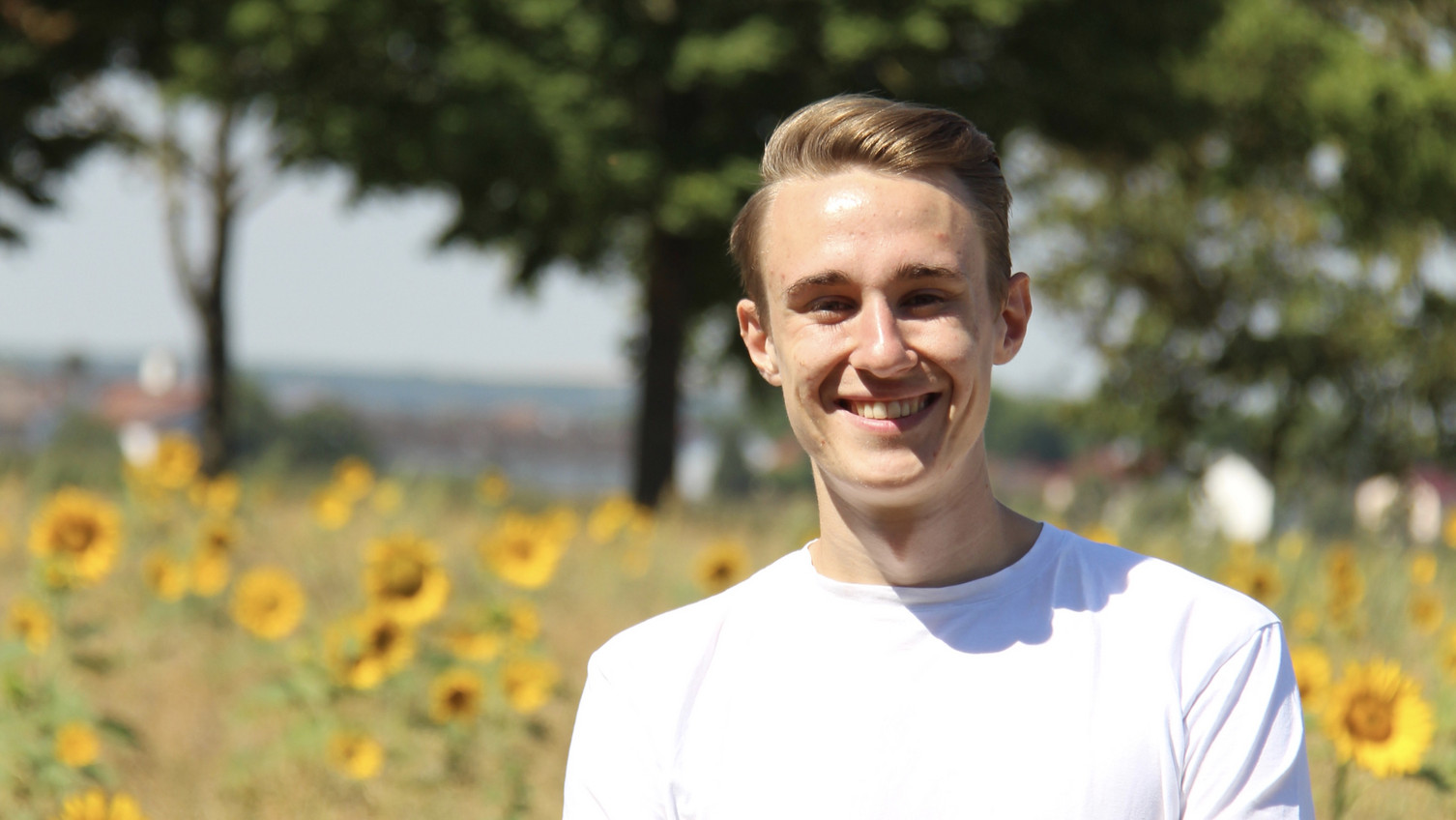 ©Privat
©Privat
Why did you decide to study Management & Sustainable Accounting and Finance at Leuphana Graduate School?
I chose the programme because I wanted to further deepen my knowledge of business economics. At the same time, I am convinced that these should no longer be applied solely in the conventional way without the inclusion of the idea of sustainability in the future. In order to put business on a sustainable path in the long term, sustainability must be integrated into all areas. That's why the broad inclusion of this topic in the programme really appealed to me. In general, the topic is strongly anchored in teaching at Leuphana. Through the inter- and transdisciplinarity, I also saw the possibility of pursuing topics that are only remotely related to the core focus of the programme, but are nevertheless linked to it in a larger context. I particularly like the fact that many current socially relevant topics can be included in the programme.
What did you study before you started your Masters degree at the Leuphana Graduate School and how were you able to tie in with it?
I previously completed a B.Sc. in industrial engineering with a technical specialisation in mechanical engineering at the TU Darmstadt. I had already started the consecutive Masters programme there and had taken a few more in-depth business subjects, as I could not meet the necessary entry requirements for the Masters programme at Leuphana with my Bachelor subjects alone. I can build on this business knowledge base in my current studies. My thematic interest in MSAF was largely sparked by my Bachelor dissertation in the field of sustainable finance and sustainability reporting. These topics are also covered in detail in the degree programme.
Leuphana sees itself as an inter- and transdisciplinary university. The orientation of your study programme is also interdisciplinary. How do you perceive this?
I like the interdisciplinarity of the study programme very much. You don't just get insights into a specific business administration specialisation, but a broad knowledge transfer in the areas of management, accounting and finance, without losing sight of sustainability. In addition, the methodology and complementary modules give you the opportunity to improve your methodology and pursue other interests.
How do you perceive the complementary studies, which are designed to be more transdisciplinary?
The complementary studies are something new and refreshing for me, because you also get insights into scientific fields with which you otherwise have less contact. Of course, it's also a good opportunity to get in touch with people outside your own degree programme.
How is the Masters programme in Management & Sustainable Accounting and Finance structured in terms of internationality?
With the exception of some elective options in the complementary area, the programme is entirely in English. Since you often come into contact with international students in mixed group work, some of whom do not speak German at all, a lot of English is also spoken around you.
There are a number of partner universities to which you can apply, but you should check carefully whether the partner university is also suitable for your own degree programme. The support from the International Office is very helpful. For our own degree programme, the third semester is suggested as a semester abroad. You should consider the subjects you miss "at home" when choosing a university abroad.
What is the relationship between the students and the lecturers?
I would describe the relationship among the students as quite close, probably also due to the small course sizes, which strengthen cohesion - similar to school classes in the past. The lecturers are always polite and helpful, so you can bring up your own concerns at any time.
Are you going on a semester abroad and do you already have certain ideas about it?
I have not been abroad as part of my studies yet. That's why I'm just finding out what opportunities there are here. At the moment, I have loosely identified Danzig and Rome as my favourites among the places to study. However, the application phase has only just begun, so I haven't looked into the individual programmes there in any depth yet. The selection may change again. I think it would be exciting not only to get to know the university programmes there, but also to experience the social and cultural life abroad.
What do you do besides your studies?
I am currently working as a student trainee at a Big 4 auditing firm. Since I can currently work completely remotely, partly due to the Corona pandemic, it is easy to combine with my studies.
I recently applied for the Fachgruppenvertretung (FGV). There I can also help shape the course of study a little.
Unfortunately, I missed the registration phase for university sports, but I've already heard a lot of positive things from fellow students, so I'd like to take advantage of this opportunity again next semester. I'm also currently thinking about joining the university’s own big band with the saxophone. In general, there are an overwhelming number of initiatives, clubs and groups that you can get involved with.
How do you like Lüneburg as a place to live and how do you spend your free time here? Do you use the semester ticket? What should everyone have done in or around Lüneburg?
I think Lüneburg is a very liveable city. On the one hand, it is simply beautiful to look at, on the other hand, it is also very lively for its size. Since I live right in the city centre, I appreciate the walking distance to all the main places and the university is also quickly reached by bike. There are many pubs and cafés where you can spend long evenings with friends. The city also has a lot to offer in the way of culinary delights for all types of diet.
At the moment, the Christmas market, which is scattered all over the city, is a great place to visit. In the summer, excursions to the Heide are said to be very worthwhile, for which you can also use the semester ticket. I don't use public transport much in the city at the moment because of my central location. However, you can use the semester ticket to travel practically all over Lower Saxony and to neighbouring areas. The possibility of using the city bike is also always very practical.
To whom would you recommend the Masters in Management & Sustainable Accounting and Finance with a focus on sustainability at Leuphana Graduate School?
You should have a sound knowledge of business economics and be prepared to adapt to a different way of learning if you have previously been in often very large "ordinary" business administration, or business economics Bachelor degree programmes. You should be open to taking subjects that were previously not the core focus of your studies. But you also get to deal with many new, relevant and interesting topics. You should also be able to work in a team and be open to discussion, as these skills are especially important in the many smaller group projects, but also in larger discussion groups.
Interviewer: Jonas Kernein
Yassin's experiences
21.09.21 The PhD student and research assistant investigated how #MeToo allegations affect share prices. The 28-year-old has now been awarded for his outstanding work at the renowned Academy of Management Annual Meeting.
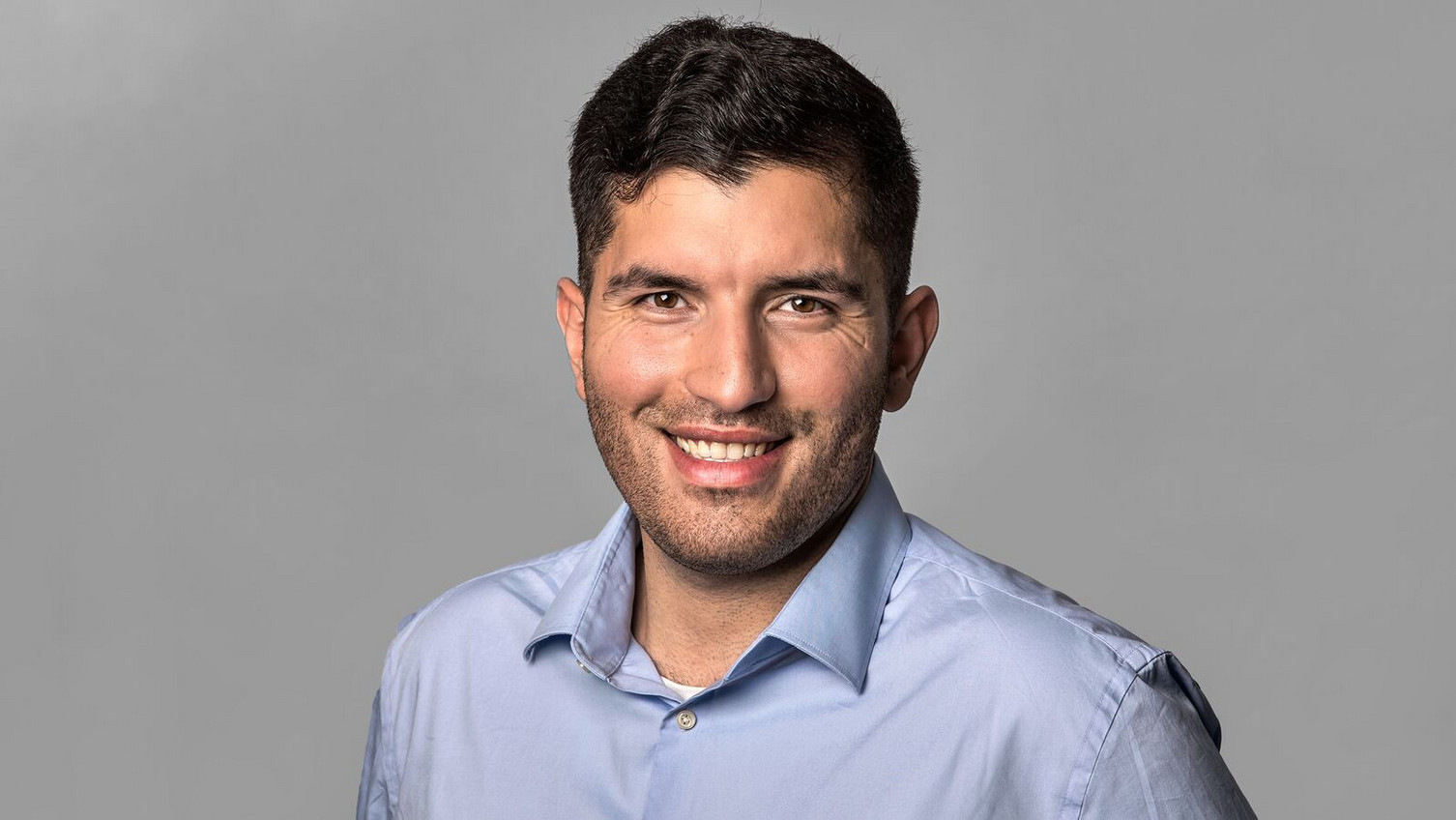 ©Leuphane/Brinkhoff/Mögenburg
©Leuphane/Brinkhoff/Mögenburg
Yassin Bouzzine began his doctoral studies just over two years ago. In the meantime, he has published four high-quality articles and has already submitted his doctoral thesis: "It was a great advantage for me that I also completed my Master's degree at Leuphana. We were very well prepared here for empirical research and scientific work in the dissertation." But the intensive supervision by his doctoral supervisor Prof. Dr. Rainer Lueg, Professor of Business Administration, especially Managerial Accounting, also contributed to the stringent process: "It is a collegial and reliable relationship. If I have a question, I can call. Then there is the constant exchange with the other doctoral students," says Yassin Bouzzine.
In his cumulative doctoral thesis, the doctoral student is working on the capital market reaction to corporate misconduct. He has now been awarded the Best Student Paper Award at the renowned Academy of Management Annual Meeting 2021 for his work on sexual harassment: The methodological cleanliness, the sound theoretical underpinning and the relevance of the topic were convincing. "I was very pleased to receive the award, because the conference is highly regarded in the management field," says Yassin Bouzzine. The PhD student investigated how allegations against individual executives affect the stock returns of the respective company. He analysed almost 400 allegations and the reactions to them on the net. The #MeToo allegations hurt the companies: Share prices fell. However, it had to be a high-profile person who was accused. Only they triggered a shitstorm. "The relevance of sustainability for companies is beyond question. In the past, women were partly silenced by declarations of secrecy. Fortunately, that no longer works today. Women use Twitter and other media to be heard. Companies have to react, otherwise they will write losses," explains Yassin Bouzzine.
He already studied the capital market reaction to corporate misconduct in his Master's degree and wrote his first publication from it: "At the time, I dealt with the Dieselgate scandal." Here, too, the analysis revealed a financial loss due to the allegations of fraud. Still, surprisingly for the young researcher, VW only made losses in the first incident. Subsequent revelations in the Dieselgate scandal only harmed other companies.
Yassin Bouzzine decided to study for a Master's degree at Leuphana a good four years ago: "I wanted to specialise after my business studies and chose the Finance and Accounting programme. After my doctorate, I would like to work in a management consultancy first," says the doctoral student. But he can also imagine returning to research later.
Author: Dr. Marietta Hülsmann
Jannik's experiences
21.12.20 The 28-year-old business economist was the first Doctoral Track candidate at Leuphana to successfully complete his doctorate, and he did so with top marks. The programme has not only saved him a year of time. Now careers in business and research are open to him. The Doctoral Track is a further development introduced in 2016 of the Fast Track originally introduced in 2008 with the start of the Graduate School, which created the opportunity to combine Masters and doctoral studies for the first time in Germany and was used.
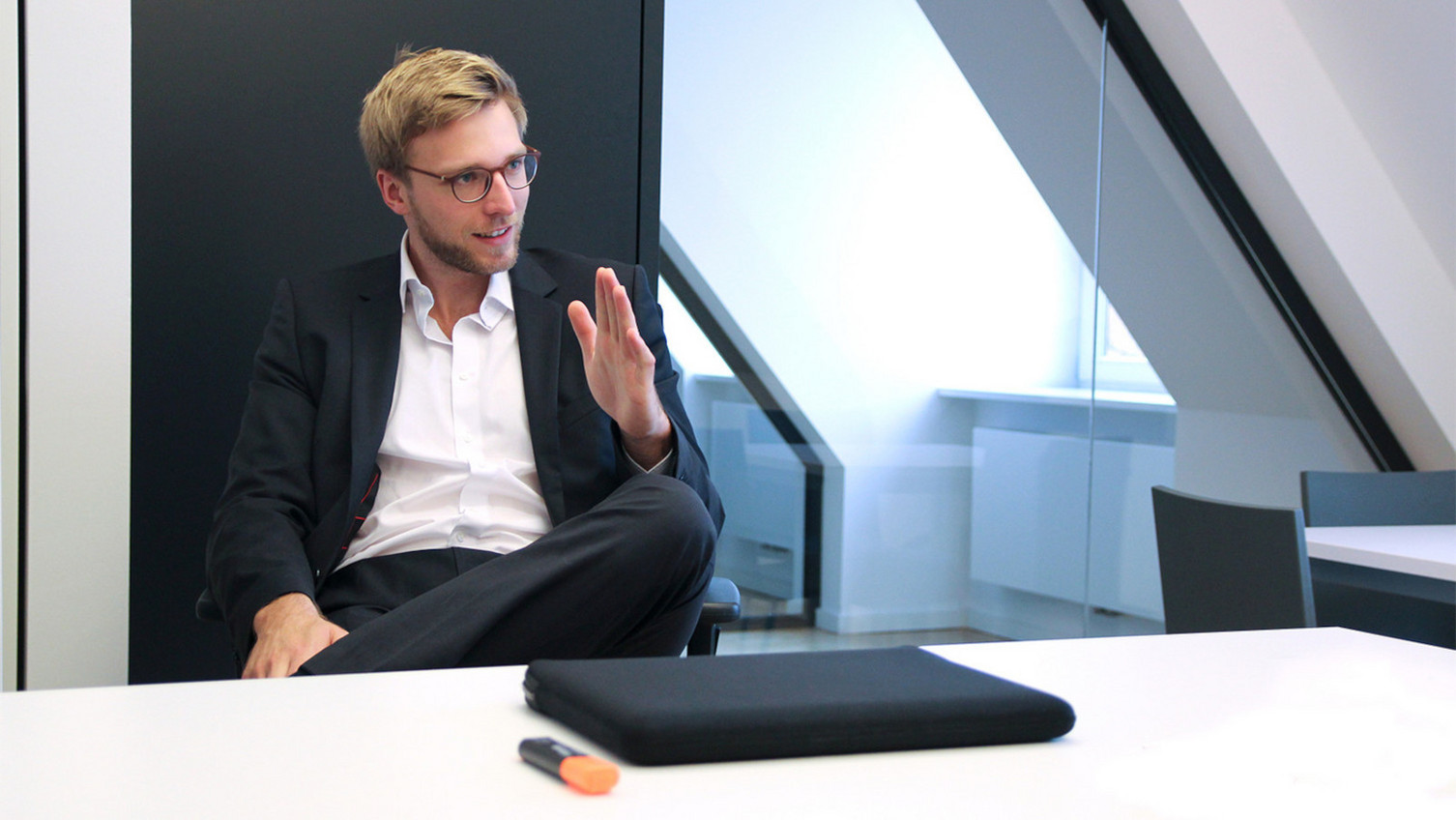 ©Leuphana/JOHANNA OCHNER
©Leuphana/JOHANNA OCHNER
When Dr Jannik Gerwanski started his doctoral studies three years ago, his doctoral supervisor Prof. Dr. Patrick Velte said about him: "He has drive." After combined Bachelor studies (Duales Studium) at the Hamburg School of Business Administration (HSBA), Jannik Gerwanski completed his Master studies in Management & Finance & Accounting at Leuphana. Alongside this, he continued to work at a large credit institution in Hamburg. During his Master's degree, he discovered his affinity for science: "I really enjoyed delving deeply into an interesting and current topic, reviewing scientific literature and analysing data statistically: I wanted to do that in more depth," explains Jannik Gerwanski. Already in his first Master's semester five years ago, he asked Patrick Velte, Professor of Business Administration, especially Accounting, Auditing & Corporate Governance, if he could do his doctorate with him. The researcher was initially reluctant and first checked the student's performance. However, Jannik Gerwanski was so convincing that Patrick Velte suggested the candidate do a doctorate as part of the Doctoral Track programme at the Graduate School. With the Doctoral Track, the Leuphana Graduate School is taking a new approach to the qualification of young academics in Germany. The programme enables particularly qualified students to gain admission to doctoral studies while they are still studying for their Master's degree. With parallel admission to a Master's degree and a doctorate, candidates can already set the course for their doctoral project during their Master's degree and become part of the scientific community at an early stage.
For Jannik Gerwanski, this meant that he completed most of the modules from his doctoral studies, such as philosophy of science, already in his Master's and wrote his Master's thesis on "Integrated Reporting", which later became his doctoral topic. Integrated reporting not only presents the financial business development of a company, but also its sustainable development from the perspective of environmental and social performance. Through targeted bundling, stakeholders should be able to inform themselves better and faster about the company's future value potential. But integrated reporting is time-consuming and costly, and it can be associated with limited objectivity. "Unchecked, a company can write many things into an integrated report. There is a danger of 'green washing'," explains Patrick Velte. To increase the quality of the information, many companies therefore voluntarily have the content of their reports reviewed by independent bodies, such as auditing firms.
In his cumulative doctoral thesis, Jannik Gerwanski investigated, among other things, whether the costly audit is worthwhile. In an experiment, he found that potential shareholders were more likely to invest in companies with an audited integrated report than in those that did without the voluntary audit. Managers, however, assessed the reports differently: "They find integrated reporting quite interesting for image reasons, but do not (yet) see any concrete practical added value in it," reports Jannik Gerwanski. Often it is soft criteria that are listed in the reports, such as a positive influence of employee satisfaction on the economic performance of the company. That is why Jannik Gerwanski, together with co-authors, developed a quality score in another contribution from his doctoral project. "We looked through about a thousand integrated reports and examined whether essential aspects were described: For example, were stakeholders adequately involved? Or did the company deal transparently with possible environmental risks in a management system?" Among other things, this showed that a heterogeneously structured top management achieved better quality scores: "Different perspectives increase the quality of the integrated reports." In fact, Gerwanski was also able to disprove the managers' fears from the interviews about the report review: Integrated reporting tended to improve with a voluntary external audit.
Jannik Gerwanski was supported with a doctoral scholarship from the business community: "I was supported sensationally and I am very grateful for it." Through the Doctoral Track, the economist Jannik Gerwanski had the opportunity to shorten the doctoral period by one year. "I gained a lot of time. I also have the good and intensive supervision by my doctoral supervisor to thank for that. Without the Doctoral Track, I would certainly have needed longer than three years for the doctoral thesis." This is because the doctoral student wanted to publish in a high-quality manner and present his research results at international conferences. "The challenge was great and I always had to stay on the ball," explains Jannik Gerwanski. After a little rest, he rejoined his employer full-time: "The doctorate is viewed very positively there. They are happy that I am now looking with a new, fresh eye at the topics that are also becoming increasingly relevant for us. Sustainability is also becoming more and more important for banks." But the freshly graduated doctor can also imagine going back to academia later: "The doctorate opens many doors for me."
Author: Dr. Marietta Hülsmann
Podcast
Contact and Counselling
First contact point
The Information Office (Infoportal) is your contact point for
- general information on the application procedure
- initial questions about the study programmes offered at Leuphana
- making an appointment with the Graduate School Student Counselling Service.
Information Office
Building 8, Ground Level
Fon +49.4131.677-2277
studierendenservice@leuphana.de
Campus opening hours
Mon - Thu 9.00 am - 4:00 pm
Fr 9.00 am - 12 noon
Student Counselling
To make an appointment with our Student Counselling Service, please use our booking tool on our website.

